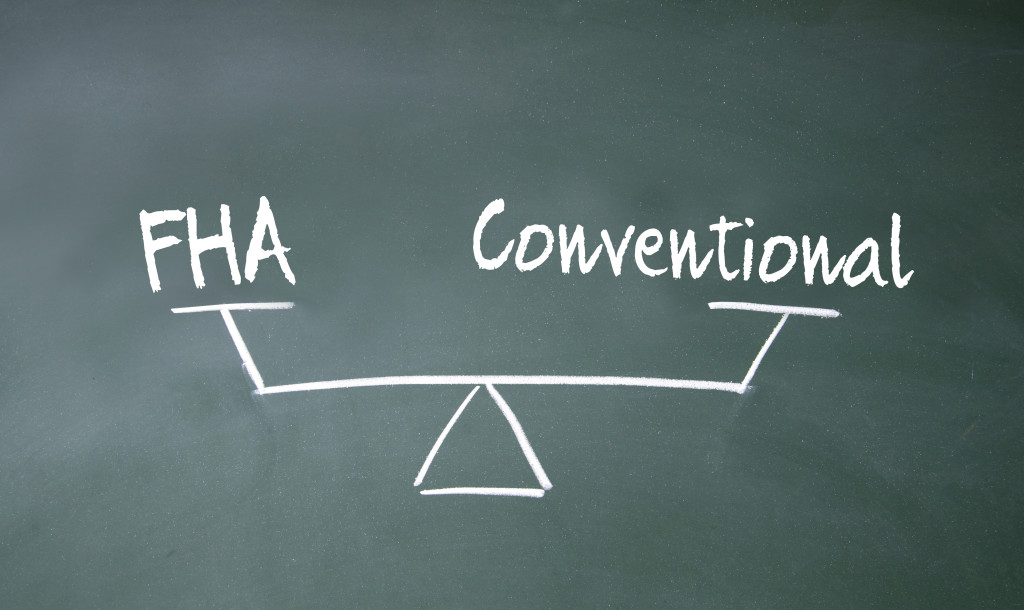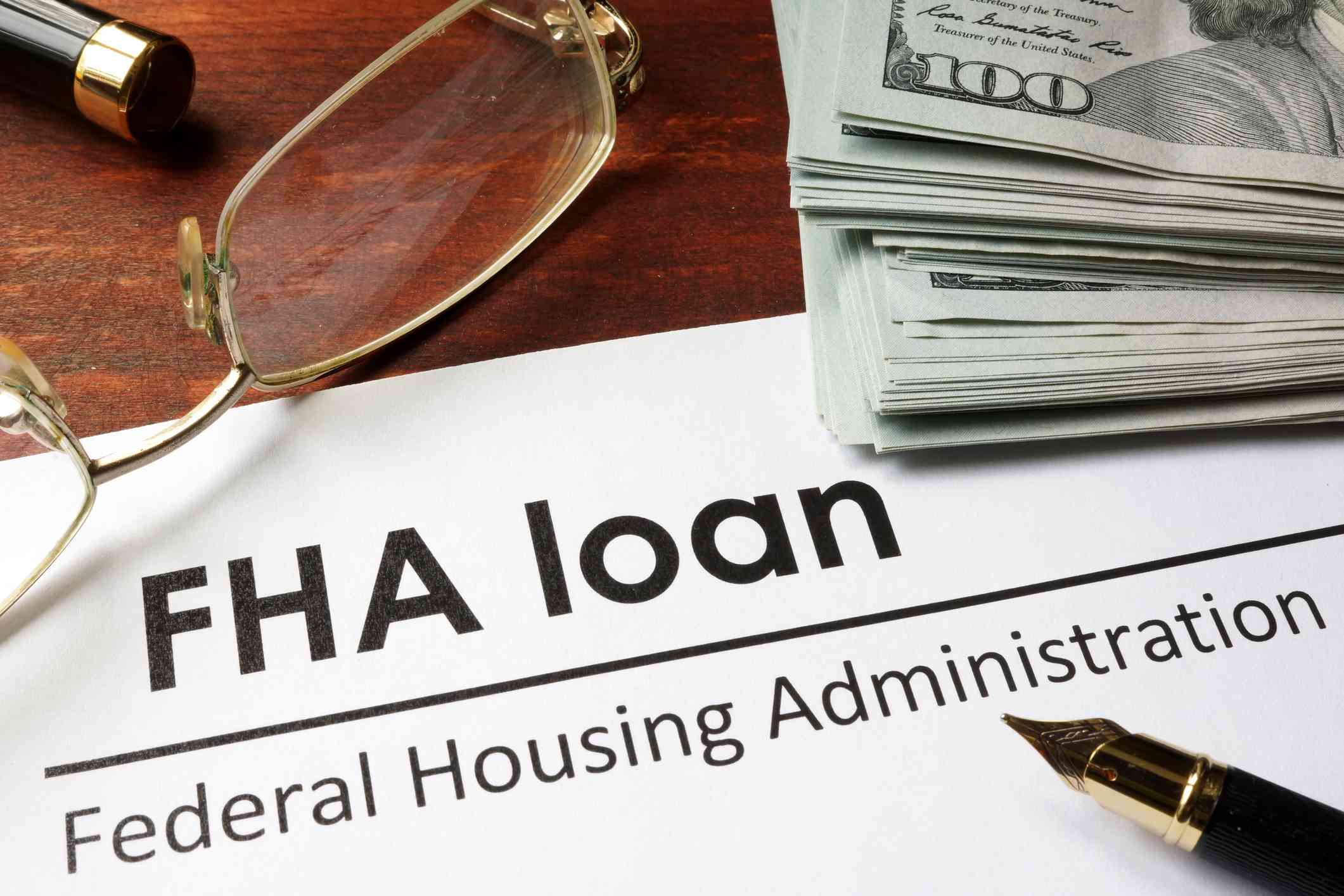How will the Nebraska housing market change in an economic downturn? The economy looks like…

FHA vs Conventional home financing, which is best for Nebraska buyers
FHA or Conventional, which is the better mortgage?
Many buyers will ask what loan program is better between FHA and conventional. The answer, like all loan questions, is it depends. Every buyer is at a different point in their life and has different reasons for purchasing a home. Obviously the big three (credit, income, assets) play a big role in what program is going to be the best option. Here we will do a quick side by side comparison of rate, fees, mortgage insurance, approval process, and appraisal. I’ll do a comparison for buyers with excellent credit compared to one with less than perfect credit.
Because every buyer’s situation is unique, the only way to really know which program is best is to contact a local mortgage lender. I service Omaha, Papillion, La Vista, Bellevue, and all of eastern Nebraska. I am happy to provide a free review of your credit and finances.
To find out what loan is right for you go HERE
Which one is better on rate?
Rate is typically the primary concern of buyers. While I believe there are other important factors to consider on a mortgage, rate is definitely up there in importance. So who wins the battle of the rate?
Rate for perfect credit buyers
Perfect credit would be considered 740+ credit scores
FHA rates
FHA loans are guaranteed by the Federal Housing Administration. That guarantee allows lenders to offer below market rates to FHA buyers. Typically with perfect credit, a FHA buyer can expect a rate that is .25% to .5% lower than traditional loan programs on a 30 year fixed loan.
Conventional rates
With perfect credit, conventional rates are still very good. However, because they are not guaranteed by a government entity they are typically going to be a bit higher than FHA and VA rates. There are other factors that will still make conventional financing the better option for buyers with perfect credit, which we will discuss below.
Rate for buyers with less than perfect credit
Less than perfect credit would be any score below 680.
FHA rates
This is where the FHA program is super effective. FHA loans were designed for buyers with less than perfect credit so the benefits compared to conventional are going to increase. The rate on FHA with less than perfect credit is going to be higher than an FHA with perfect credit, but the difference is not going to be as drastic. A buyer with less than perfect credit on FHA might see a rate .25% to .5% higher than an FHA buyer with perfect credit.
Conventional rates
For less than perfect credit buyers, FHA often becomes the only option. But even if you do qualify for conventional with less than perfect credit it may still be a good idea to go FHA. Conventional rates are much more sensitive to credit score. As the scores get lower the gap between conventional and FHA widens. With less than perfect credit the rate difference between FHA and conventional could be 1% or more. There are still certain scenarios where conventional, even with the higher rate, could be the better option (more on that later).
And the winner on rate is: FHA on both perfect and less than perfect
FHA is almost always going to have a lower rate than conventional and the difference gets greater the lower the credit scores.
Which one is better on fees?
All loans have cost, but not all loans have the same cost. When saving up funds for a home every penny counts so knowing the cost is important.
Fees for perfect credit buyers
If you have perfect credit, there will be benefits to not only the rate but also the fees on a loan.
FHA loan fees
There are two types of fees on every loan. There are lender fees and third party fees (title, government fees, pest inspection, etc). Lender fees can vary from lender to lender, but third party fees are going to be the same no matter the lender and no matter the loan type. Lender fees are going to be very similar between FHA and conventional. Typically an FHA appraisal cost slightly more, but it is not much.
The biggest difference on FHA is going to be the Upfront Mortgage Insurance. In addition to all the standard loan fees, FHA is going to charge a 1.75% Upfront Mortgage Insurance fee. This will be added to your loan so you will not bring it to close. But it is still a fee and, depending on loan size, it can be significant.
There are ways to get the fees down on a loan. With a slightly higher rate the lender can give a “lender credit” to cover some or all of the cost. The advantage of FHA is, with perfect credit, the rates are so low that even a higher rate is still going to be very good.
Conventional loan fees
Conventional loan fees are going to be similar to FHA fees on a perfect credit buyer. The biggest difference is going to be that FHA Upfront Mortgage Insurance. Conventional can have monthly mortgage insurance (just like FHA) but it does not have an upfront MI fee. That lower fee on conventional can often more than offset the slightly higher rate on conventional.
Fees for buyers with less than perfect credit
While the fees on a loan are not affected directly by credit score. With a lower score there is often a “discount fee” charged even at higher rates. What this means is you are buying the rate lower. You can do this on any loan and with any credit score.
FHA loan fees
FHA is less affected by lower credit scores so any discount fee charged (if any) will be lower on an FHA loan than a conventional. If you do have less than perfect credit the lower discount fee can offset that Upfront Mortgage Insurance.
Conventional loan fees
Again conventional is more sensitive to credit score than FHA. If your scores are lower you will not only have a higher rate on conventional, you could also have a high discount fee just to get that higher rate. There is a certain point on the credit score where FHA starts to become the better option for rate and fees.
And the winner on fees is: Conventional with perfect credit – FHA with less than perfect credit
FHA does have the disadvantage of the 1.75% Upfront Mortgage Insurance fee, but once you starting getting into the lower credit scores the better rate and lower discount fee makes up for that upfront MI.
Which one is better on mortgage insurance?
Mortgage insurance is not a benefit to the buyer. FHA charges an upfront and monthly MI fee to cover the Federal Housing Administration against defaults. Conventional also has MI above 80% loan to home value to cover Fannie and Freddie against default losses. So which one is better?
Mortgage insurance for buyer with perfect credit
This is where the two programs differ radically. FHA mortgage insurance is a set amount and does not change based on down payment on credit score. Conventional on the other hand is based on down payment, credit score, even debt ratios.
FHA loan mortgage insurance
Whether your score is 800 or 580 the mortgage insurance is .85% of the loan amount per year. If you are taking out a $100,000 loan the mortgage insurance will be $850 a year divided by 12. It does not change and more importantly it NEVER drops off. This is the biggest negative of FHA. The FHA MI is paid for the life of the loan.
Conventional mortgage insurance
This is where the big benefit of conventional comes into play. With excellent credit the mortgage insurance can be very low. It can fluctuate based on the provider and the market, but generally, with great credit, even a low down payment conventional loan MI will be a fraction of FHA MI. With a larger down payment the mortgage insurance gets even lower. The largest benefit of conventional is the mortgage insurance drops off once you get to 20% equity.
Mortgage insurance for buyers with less than perfect credit
Again FHA MI stays the same no matter the credit score. Conventional however can increase dramatically. At lower credit scores (less than 680) mortgage insurance might not be approved at all and the buyer will have to go with an FHA loan.
FHA loan mortgage insurance
For less than perfect credit it is often not a question of which is better between FHA and conventional. FHA is usually the only option. Conventional will not give a loan approval at certain credit scores (other factors come into play so I cannot give an exact approval score). Even with a conventional loan approval, at lower scores the MI might be much higher than FHA’s .85% a year.
Conventional loan mortgage insurance
There may be certain situations where conventional is still the way to go even with less than perfect credit. If you have a larger down payment, conventional MI could still be lower even with low credit scores. If you have a decent down payment it still might be better to go conventional even if the MI is higher than FHA because it does eventually drop off the loan.
And the winner on mortgage insurance is: Conventional with perfect credit…By a long shot – It is a toss up with less than perfect credit
If you have perfect credit there are very few scenarios where FHA is the better option. Once the scores start to reach less than perfect credit, FHA starts to become the better, and sometimes only, option.
Which one has a better loan process?
This is a pretty vague term and the loan process has a lot of other factors involved. The skill of the loan officer and the participation of the buyer are key to a smooth loan process and closing. If the loan officer is not familiar with all the rules it can create a mess. Also, if the buyer is slow to provide documentation or does not provide accurate information on an application it can create an even bigger mess and jeopardize the home purchase. But FHA and conventional do have different loan processes.
Loan process for buyers with perfect credit
Here is the honest truth. No matter what loan program you are doing having perfect credit will make the process easier…Much easier. A buyer with good income, good assets, and perfect credit can sail through the loan process nice and easy. Once you get into less than perfect credit, high debt ratios, and limited assets everything can get just a little more difficult. It is important to set the proper expectation in the beginning.
FHA loan process
With great credit an FHA loan is not much different than a conventional. While it depends on all aspects of a buyers finances and credit, perfect credit usually means a better loan process. But there is an issue. Many sellers and seller’s agents consider FHA to be a more difficult loan. This is more because FHA is used more often for buyers with more difficult situations, but the stigma is out there. This can make your FHA offer less desirable compared to a conventional offer. That is something to consider in a seller’s market.
Conventional loan process
With perfect credit and a good application overall a conventional loan is usually super easy. If you have a decent down payment it is possible to even avoid an appraisal in some scenarios. With a great application and credit, and a knowledgeable loan officer, a conventional purchase should be super easy.
Loan process for buyers with less than perfect credit
As mentioned above, lower credit not only means higher rates and fees it also usually means a “hairier” loan process. This is where a knowledgeable loan officer is essential. One missed bit of information or miscalculation and a loan could be turned down right before closing.
FHA loan process
The FHA loan was designed to help buyers with less than perfect credit. Because of this it is definitely the better option if you have less than perfect credit. It’s rules for buyers with less than perfect credit are more relaxed than conventional and it is more forgiving on debt ratios, scores, and assets. The process will often not be perfect with less than perfect credit, but it will be better going FHA (this might be the only option for some buyers).
Conventional loan process
With less than perfect credit conventional financing is often not an option, but there are cases where a buyer could still go conventional (IE a large down payment). If a buyer is going conventional with less than perfect credit there is usually a lot of compensating factors that should make the process fairly easy. Again with less than perfect credit a good loan officer who thinks of everything before telling a buyer they are pre-approved is an absolute necessity. Conventional financing is considered the traditional “easy” loan program. Sellers and seller’s agents are going to, all things being equal, be more likely to pick a conventional buyer over a FHA buyer.
And the winner on loan process is: …Well it mainly depends on the buyers income, assets, and credit…But conventional is considered by most sellers and agents to have a better loan process
How smooth the loan process is will depend primarily on the buyer’s income, asset, and credit situation. It will also depend on the knowledge and attention to detail of the loan officer. But most people in real estate consider conventional to be a “smoother” loans. If a seller has the option to pick a conventional buyer and an FHA buyer they will usually go with the conventional loan buyer.
Which is better on appraisals?
This is one area where FHA is actually a bit worse on loan process. The home appraisal can make or break a home purchase. The value on the appraisal must come in at the purchase price or the buyer and seller will have to renegotiate terms. A good agent will make sure your offer is reasonable so appraisal value issues are rare, but they do happen.
Appraisals with perfect credit…And less than perfect credit
I’ll skip the comparison between perfect credit and less than perfect credit. For an appraisal, your income, assets, and credit history do not matter.
FHA appraisals
The biggest reason sellers and seller agents do not like FHA loans is because of FHA required repairs. An FHA appraiser can make repairs a condition of an acceptable appraisal. The appraiser’s report will list a home value that is “subject to” certain repairs being completed prior to close. These repairs are usually limited to safety issues. Broken windows, exposed wire, missing railing, chipping lead paint, and tripping hazards. If these repairs are listed it is up to the buyer, seller, and their agents to come to an agreement on how these will be completed prior to close. This is where working with agents familiar with the home buying process is important.
Conventional appraisals
Most conventional appraisals will come back without required repairs. As long as the house can function as a residence, this part of the loan process should be smooth. A functional house must have a functional kitchen and bathroom. It can also not be exposed to the outside (no missing outer walls). If the appraiser see significant parts of the house as incomplete he can also request these be completed. Though I personally feel repairs on an appraisal are not that big of an issue, real estate agents are a bit spooked by the chance of required repairs. This is one of the reasons conventional is considered the better option.
And the winner on appraisal is: conventional by far
If you want to make sure your offer is accepted over other potential offers, using conventional financing is going to greatly increase your chances.
A good loan officer will review all options
The question of whether FHA or conventional is better really focuses on the wrong issue. These programs are designed for two different buyers. A good loan officer will be able to identify which one is best for you and, if needed, give advice on how to qualify for the program that fits your needs.
The general rule is conventional financing is for buyers with perfect credit or a good down payment. FHA is for buyers with less than perfect credit or little assets to contribute to the purchase of their home. This is not always the case, but a good rule of thumb to start. After a full review of your credit, income, and assets we can figure out if there is a way to get you into a conventional loan or make a plan to start with FHA and get you into conventional at a later date.




